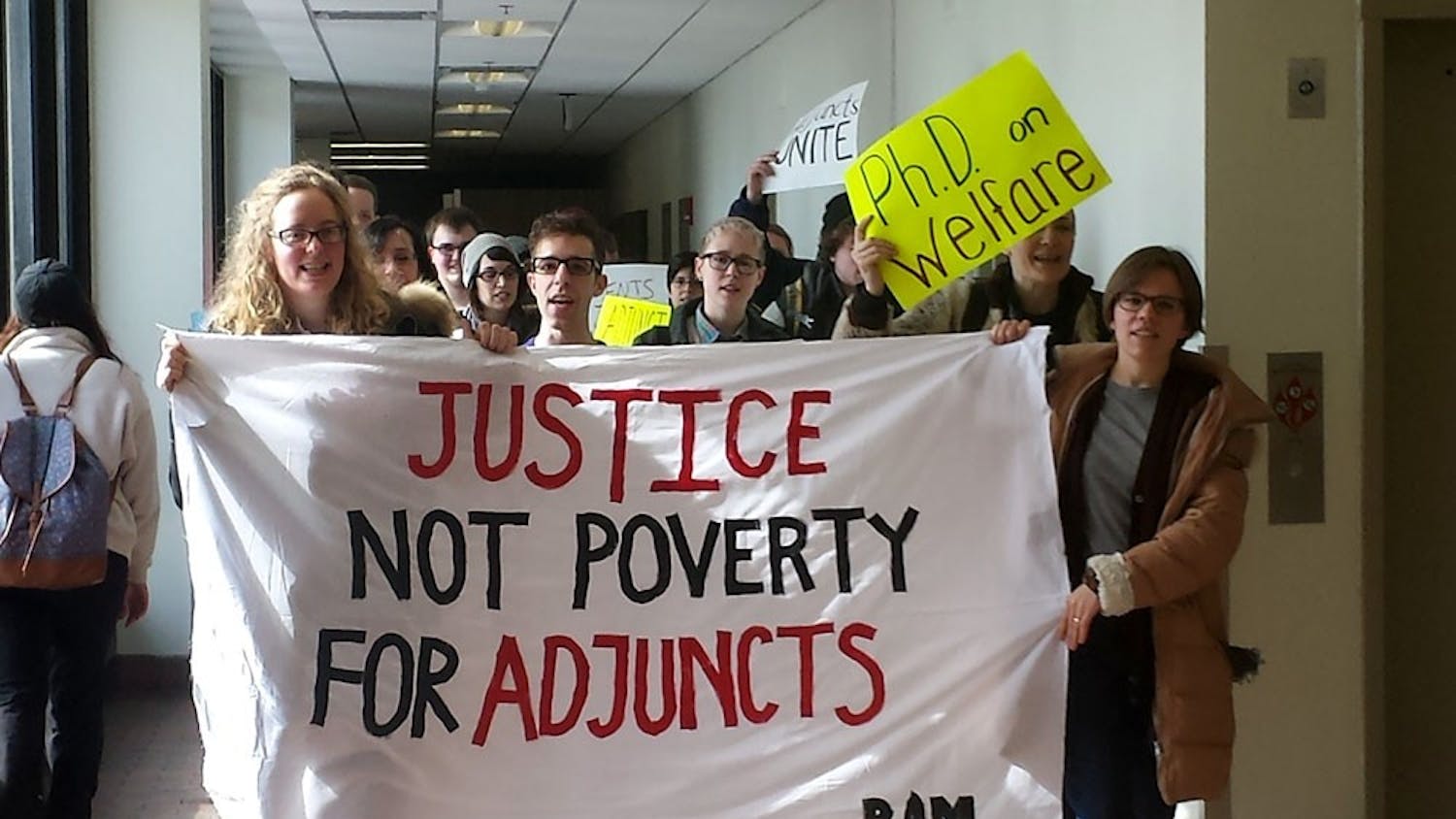President Barack Obama was re-elected on Tuesday night, beating Republican nominee Mitt Romney in enough swing states to secure four more years in the White House.
The closely fought election came down to a nearly split nation. Obama defeated Romney despite a weak economic recovery and persistent high unemployment as voters decided between two polarized visions for the United States.
As of Tuesday night, Obama earned 54,830,313 votes and 303 electoral votes. Romney had 53,776,833 votes and 206 electoral votes. The president narrowly won inOhio, Wisconsin, Iowa, Pennsylvania, New Hampshire, Virginia, Colorado and Nevada - which were all battleground states.
Florida was too close to call at the time of press, but the results of the election had already been projected in Obama's favor.
Romney received 49 percent of the popular vote while Obama earned 50 percent. Distinguished political science professor James Campbell said it might bethe smallest margin an incumbent won by in American history.
UB students watched the election results in the Ellicott Complex Atrium, among other places around the Buffalo area. At about 11:15 p.m., many jumped out of their seats and embraced their friends when it was projected Obama would win.
"I'm extremely happy about Obama," said Joselyn Barahona, a sophomore interdisciplinary human services major. "I'm overwhelmed with joy; this is something amazing. I can't believe it. It's an amazing, amazing moment."
Barahona said the president is the type of person who keeps the entire country in mind. He "wants the best for everyone." She thinks he's the best candidate for college students. She wants to stay at UB, and she said Obama provides more opportunities for her to obtain financial aid.
The Spectrum polled 1,242 UB students prior to the election, and 44 percent said they would vote for Obama, while 23 percent said Romney.
Harsh Agarwal, a sophomore computer science major from India who is not an American citizen, couldn't get up from his seat after learning Obama was re-elected. Agarwal is worried about his future in America, or if he still has one with Obama as president.
Agarwal said he now has to make amends with his family in India, who he's currently not on good terms with, and move back after he graduates. He thinks economic growth under Obama has been insufficient and doesn't know if he can still one day be a successful American business owner.
"I'm really disappointed," Agarwal said. "I think this was the biggest election at least in my lifetime, as of now, because this is going to define what my career is going to be. I was planning on staying over here after I graduate, and it doesn't seem like that anymore."
Campbell, who voted for Romney, wasn't surprised by Obama's slim victory. He said the nation is currently extremely polarized, and Obama's incumbency made the difference in the election.
Campbell said Hurricane Sandy highlighted Obama's incumbency and may have given Obama an advantage. According to an NBC and Wall Street Journal survey, roughly 67 percent of likely voters approved of how Obama handled himself in the aftermath of Hurricane Sandy while 16 percent disapproved.
Before Hurricane Sandy, Romney was leading political polls by one point. After the hurricane, Obama built up a slight lead, according to Campbell.
Campbell said those who voted for Obama didn't consider the biggest issue of this election: the economy. He said because the recession was over within the first five months of Obama taking office in 2009, it was Obama's responsibility to turn it around.
"Obama perused policies that were not productive," Campbell said. "We're $6 trillion further in debt, and we still have economic growth of 1.5 or 2 percent and 8 percent unemployment. To me, I don't see how any reasonable person will look at that and not say it didn't work out."
Campbell also pointed out Obama's failure to pass Obamacare as bipartisan. No Republicans in the House or the Senate voted for it, which is not a "healthy situation."
English professor Neil Schmitz said Obama will be a stronger president in his second term.
"He will be able to do things he couldn't do in his first term: confront intransigent Republicans in Congress, set in place new regulations on Wall Street and financial centers and he'll continue to make wise appointments to his cabinet and major federal agencies," Schmitz said in an email.
Vice President of College Democrats Brendan Dunn agrees with Schmitz and said America will see significant improvement in the next four years.
"A lot of his policies and legislation that was passed over the years of his first term will be coming into effect, and we'll be seeing a lot of the results and benefits of his legislation," Dunn said.
Many students and professors are looking forward to the direction Obama is leading the country in socially, such as equal rights for the LGBTA community and marriage equality.
Schmitz looks forward to America continuing to "go rainbow." Obama will continue to appoint wise judges and protect Americans' liberties, he said.
As far as economic, domestic and foreign policies go, half the country was willing to renew Obama's term and half said he failed and the United States should try someone different.
Obama's legacy in his last four years includes: passing the Affordable Care Act (2010), passing the $787 billion American Recovery and Reinvestment Act (2009) to stimulate economic growth, ending the war in Iraq, eliminating Osama bin Laden, turning around U.S. Auto Industry, recapitalizing banks, repealing the military's "Don't Ask, Don't Tell" policy and topplingLibyan Leader Moammar Gaddafi.
Many students at UB are optimistic and excited for the next four years, which will be a test of whether or not the president will keep his promises.
Email: news@ubspectrum.com




